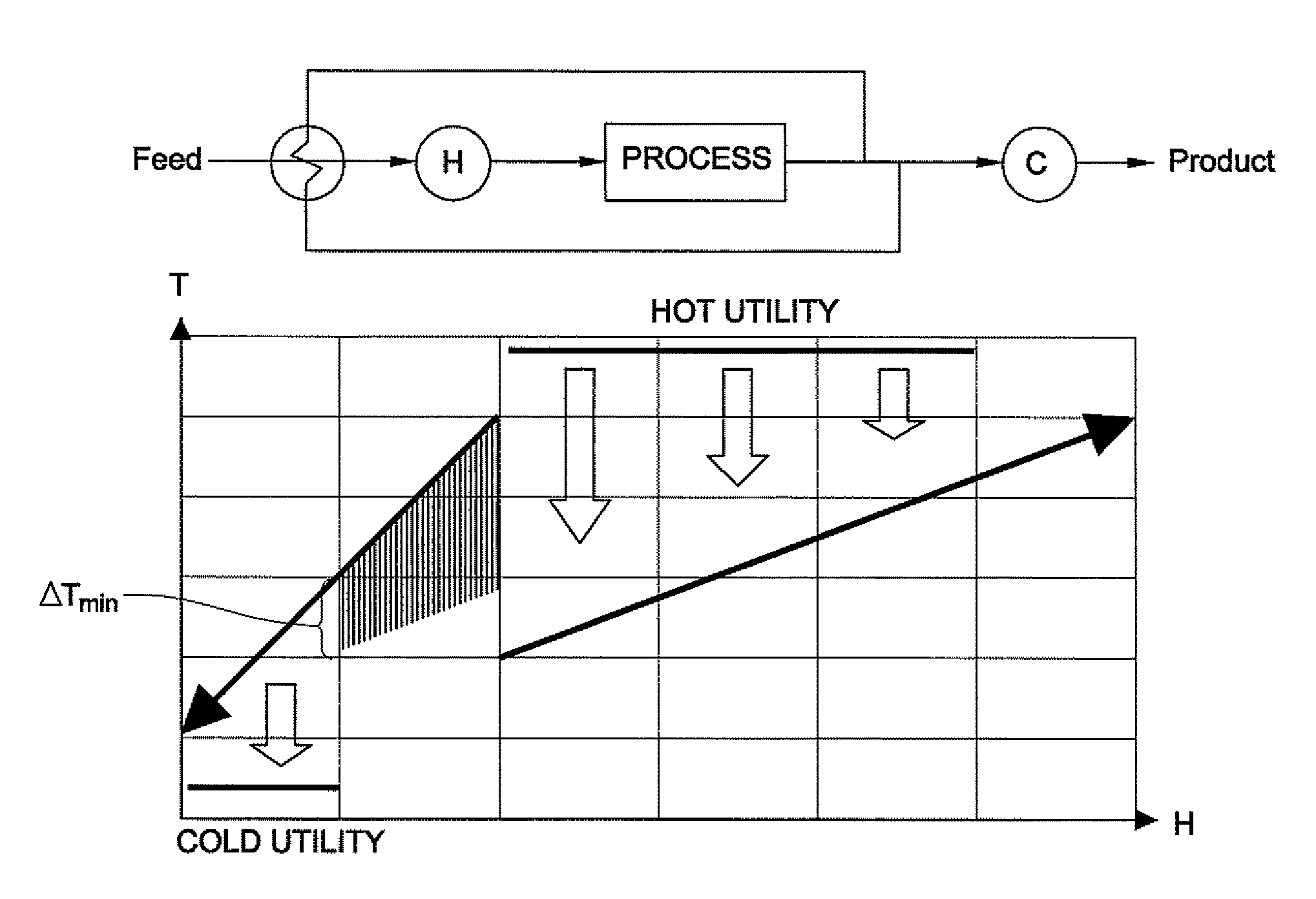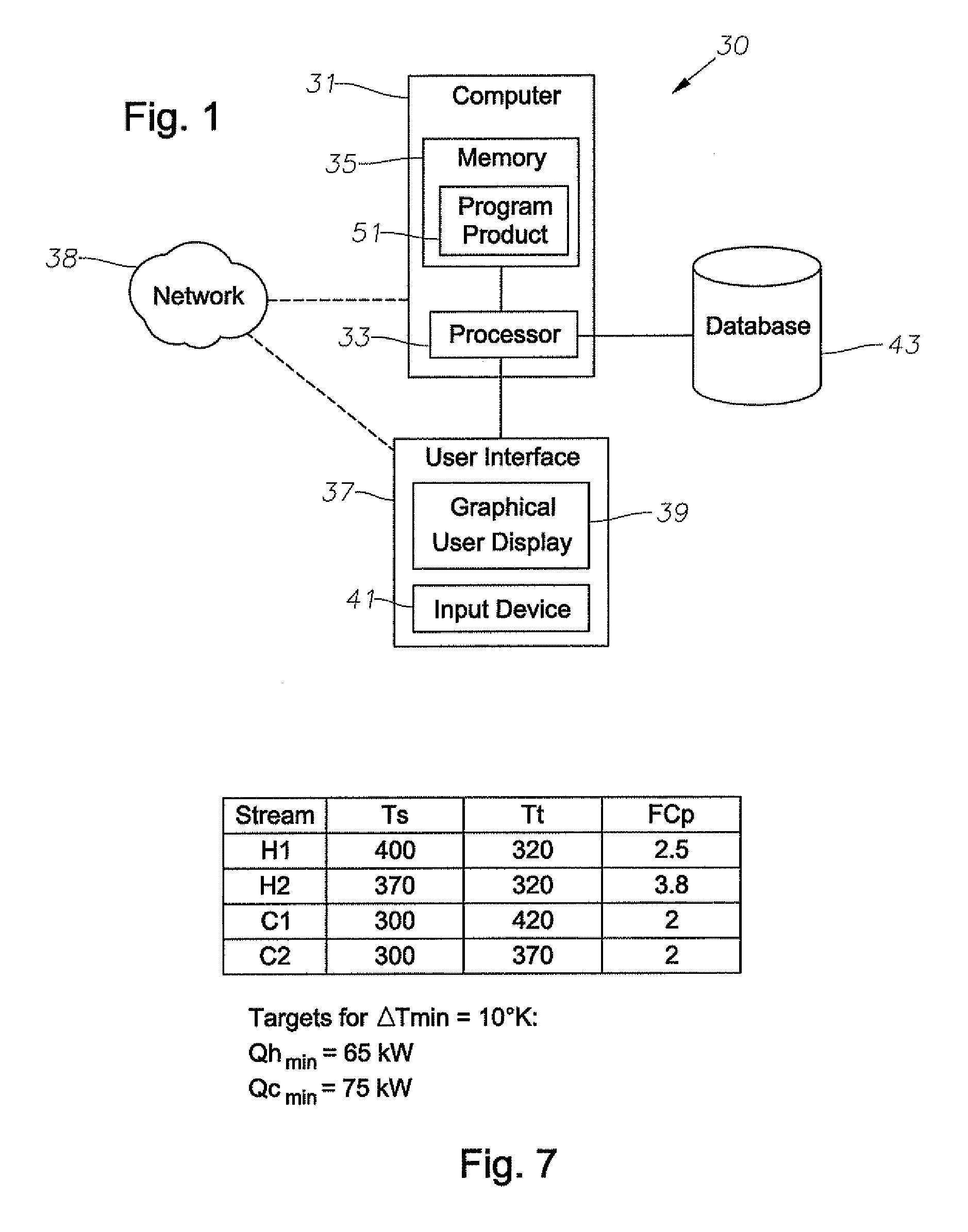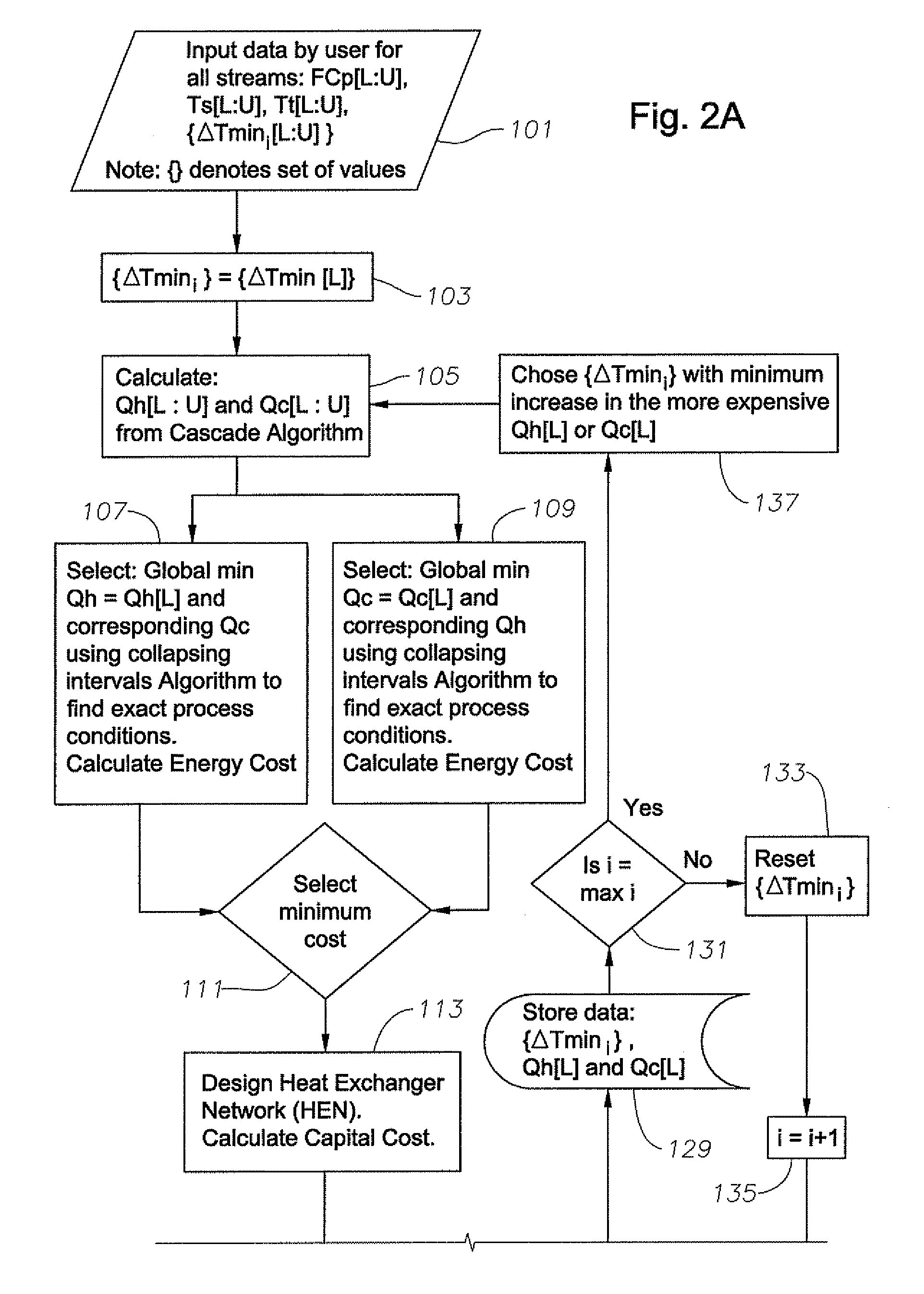System, method, and program product for targeting and optimal driving force distribution in energy recovery systems
a technology of energy recovery system and optimal driving force, applied in the field of energy recovery system, can solve the problems of not being particularly flexible in application, chemical processes consume energy to provide desired, many different types of processes consume energy, etc., and achieve the effect of optimizing design, improving energy efficiency consumption, and efficient operation
- Summary
- Abstract
- Description
- Claims
- Application Information
AI Technical Summary
Benefits of technology
Problems solved by technology
Method used
Image
Examples
Embodiment Construction
[0046]The present invention will now be described more fully hereinafter with reference to the accompanying drawings, which illustrate embodiments of the invention. This invention may, however, be embodied in many different forms and should not be construed as limited to the illustrated embodiments set forth herein. Rather, these embodiments are provided so that this disclosure will be thorough and complete, and will fully convey the scope of the invention to those skilled in the art. Like numbers refer to like elements throughout. Prime notation, if used, indicates similar elements in alternative embodiments.
[0047]As shown in FIGS. 1-23, embodiments of the present invention provide a method, system and / or program product to be used to model the energy consumption of an industrial process to optimize heat / energy recovery within a process having a plurality of resource streams, through the determination of global energy utility targets and the determination of an optimal driving forc...
PUM
 Login to View More
Login to View More Abstract
Description
Claims
Application Information
 Login to View More
Login to View More - R&D
- Intellectual Property
- Life Sciences
- Materials
- Tech Scout
- Unparalleled Data Quality
- Higher Quality Content
- 60% Fewer Hallucinations
Browse by: Latest US Patents, China's latest patents, Technical Efficacy Thesaurus, Application Domain, Technology Topic, Popular Technical Reports.
© 2025 PatSnap. All rights reserved.Legal|Privacy policy|Modern Slavery Act Transparency Statement|Sitemap|About US| Contact US: help@patsnap.com



